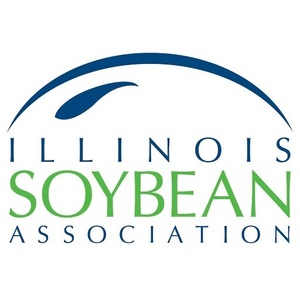B20 Club welcomes new members Ozinga, GGE

May 27, 2021
BY Illinois Soybean Association
The B20 Club recently welcomed new members Ozinga and Green Grease Environmental.
Founded in 2012, GGE is a specialized recycler of used cooking oil (UCO) from restaurants, hospitals, schools, and stadiums in the Chicago area. The UCO collected by GGE is converted int clean, renewable biofuels designed to power diesel vehicles. GGE proudly powers its fleet with B11 and B20 biodiesel blends year-round in support of a cleaner environment and healthy air.
GGE’s goal is to make the recycling of UCO into domestic energy, like biodiesel, for local consumption the standard for fryer oil disposal in the Chicagoland area.
“Green Grease Environmental is proud to fuel our fleet of diesel vehicles with biodiesel blends in support of a healthy environment and the circular economy,” said Tony Demma, GGE owner.
Ozinga is a fourth-generation family-owned American business providing concrete, materials, energy and logistics solutions across the Midwest and South Florida regions. Perhaps best recognized for its red and white striped concrete mixer trucks, Ozinga is proud to be an American-owned, fourth-generation family business serving individuals and its communities for more than 93 years.
Ozinga combines its deep knowledge of concrete, bulk materials, and running its fleet on renewable natural gas and B20 biodiesel. Ozinga is a source for compressed natural gas (CNG) and renewable natural gas solutions for third-party fleets across the United States. They offer on-site and public fleet fuel sales as well as custom CNG station design and construction.
“I would encourage any fleet – large or small – to consider using drop-in B20 biodiesel,” said Jeffrey Bonnema, vice president of fleet management for Ozinga. “It has been an easy and cost-effective way for us to reduce our emissions and protect the health of our employees, customers, and the communities we proudly serve.”
Together, GGE and Ozinga use a combined 2.75 million gallons of B20 every year, which equals approximately 550,000 gallons of B100, and reduces carbon equivalent to planting more than 79,000 trees annually. The companies also provide a combined health savings benefit of nearly $235,000 from avoided impacts like hospitalizations, lost workdays, and asthma attacks annually.
“Illinois Soybean is excited to welcome Green Grease Environmental and Ozinga as new members of the B20 Club. With these new partnerships, we can reduce carbon emissions in urban areas today using a better, cleaner fuel that is grown right here in Illinois,” said Andrew Larson, ISA director of public policy and market development.
“We look forward to working with Ozinga and Green Grease Environmental to promote their efforts to improve Chicago’s air quality and safeguard the environment with cleaner-burning, drop-in B20 biodiesel,” added Bailey Arnold, senior manager with the American Lung Association and ISA’s lead for the B20 Club.
A partnership between the Illinois Soybean Association (ISA) and the American Lung Association, the B20 Club recognizes a select group of Illinois-based organizations with strong commitments to run fleets on biodiesel blends of 20 percent or greater. For more information on the B20 Club, visit www.b20club.org.
Advertisement
Advertisement
Related Stories
Calumet Inc. on Aug. 8 confirmed its Montana Renewables biorefinery is currently running at full capacity. An initial phase of the company’s MaxSAF initiative remains on track to boost SAF capacity to up to 150 MMgy by mid-2026.
The USDA maintained its outlook for 2025-’26 soybean oil use in biofuel production in its latest World Agricultural Supply and Demand Estimates report, released Aug. 12. The forecast for soybean oil prices was also unchanged.
U.S. soybean production for 2025 is forecast at 4.29 billion bushels, down 2% when compared to last year, according to the USDA National Agricultural Statistics Service’s latest monthly Crop Production report, released Aug. 12.
Marathon Petroleum Corp. on Aug. 5 released second quarter financial results, reporting improved EBITDA for its renewable diesel segment. The company primarily attributed the improvement to increased utilization and higher margins.
Chevron Corp. on Aug. 1 confirmed the company started production at the Geismar renewable diesel plant in Louisiana during the second quarter after completing work to expand plant capacity from 7,000 to 22,000 barrels per day.
Upcoming Events










